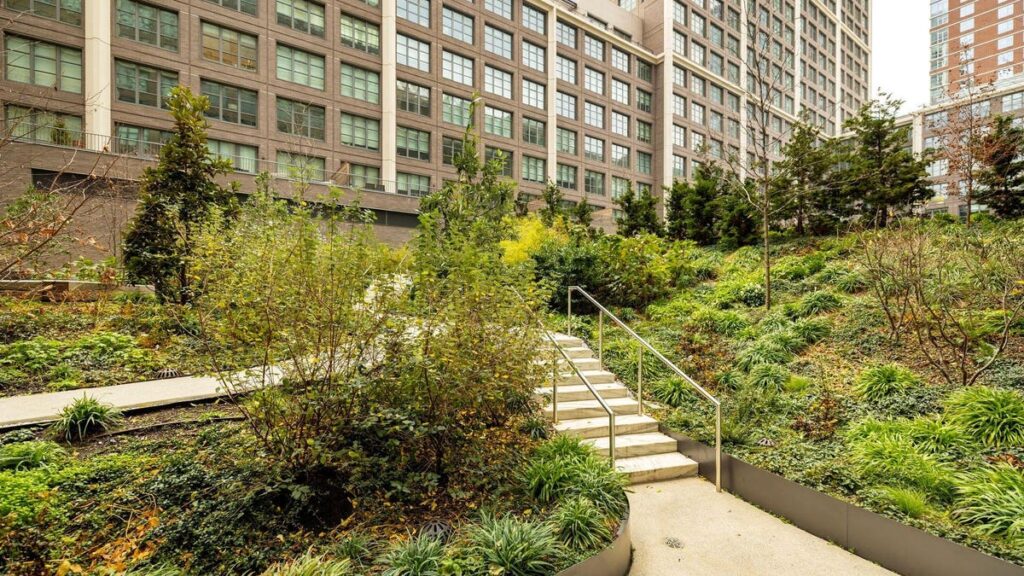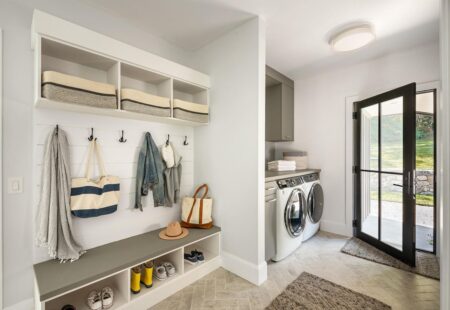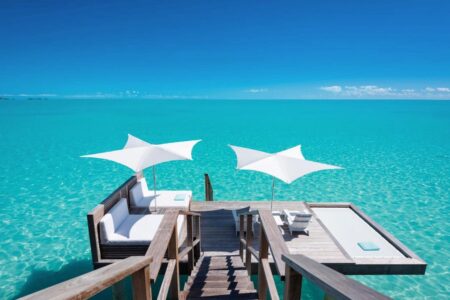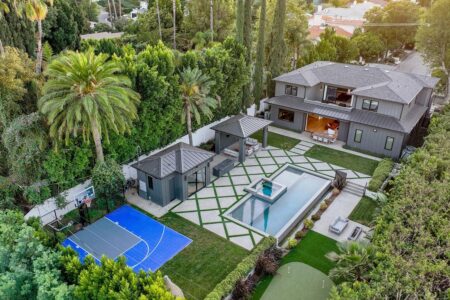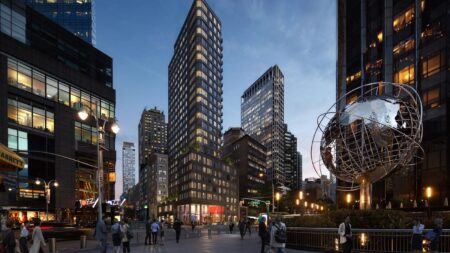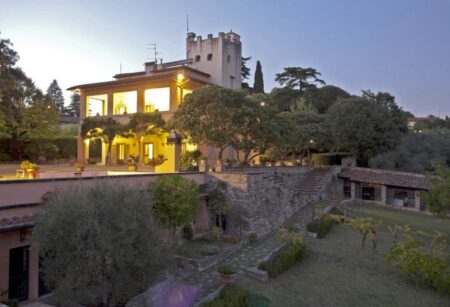Colorado State University’s Institute for the Built Environment (IBE) and NAVA Real Estate Development have completed a three-year research study of Lakehouse, the first WELL-Certified multifamily residential community in Colorado.
The result: Evidence of enhanced satisfaction and heightened physical and emotional well-being among Lakehouse residents. The multifamily community is a 12-story, 196-unit property in Denver’s Sloan Lake enclave, designed to promote residents’ health and well-being.
The researchers found positive results could be attributed in part of the healthy infrastructure of the building, which includes biophilic design, predominantly glass exterior, an organic urban farm and last but not least, meditation gardens.
Meditation nation
Evidence indicates Americans are increasingly embracing meditation as a means of coping with our ever-more frazzled society. More than 36 million people are said to be regular meditation practitioners. A TechCrunch report found meditation has become a $200 million business, and is still growing.
The National Library of Medicine uncovered evidence people who meditated over long stretches of time displayed changes in areas of the brain associated with stress and anxiety. Is it any surprise, then, that developers are increasingly prioritizing the inclusion of meditation gardens in amenity packages?
Spend some quiet time yourself now. Relax your neck and shoulders, breathe deeply and reflect on the following examples of the meditation gardens trend.
212 West 72nd Street, New York City
This Upper West Side luxury condominium offers a tranquil interior garden designed for meditation and yoga. A wooden pergola enveloped in hanging florals and luxuriant landscaping are among features helping make this a favorite of self-reflective residents. “We realized we had a great opportunity to transform the building’s interior into something special,” says John Tashjian, managing partner with Centurion Property Investors, the developer. “Plants were added to promote stress relief, as it’s said greenery can boost dopamine levels.’
The Perigon Miami Beach
A frondescence-filled garden gives residents a serene setting they can retreat to within the building’s grounds. Water features and seating areas are connected by a network of nature trails, helping enable residents to unwind and tune out the too-often-frenetic Southeast Florida lifestyle. “The gardens are shaded by the building’s elegant cantilevering architecture, providing an additional layer of privacy to those seeking respite,” says Camilo Miguel, Jr., the CEO and founder of developer Mast Capital.
Rose Hill, New York City
The lush garden of this Art Deco-inspired condominium tower in Manhattan’s NoMad enclave features an elegant courtyard, vibrant plantings and luxuriant seating. Developer Rockefeller Group and designer CetraRuddy envisioned a calming meditation garden that could help residents savor sunlight and fresh air, while finding quiet and serenity inside their very own residential building.
Front & York, Brooklyn
Within this mixed-use building in Brooklyn’s DUMBO, landscape architect Michael Van Valkenburgh Associates (MVVA) created a verdurous half-acre oasis for meditation. A seeming miniature version of nearby Brooklyn Bridge Park, also designed by MVVA, Front & York’s private park is a peaceful hiatus encircled by foliage, allowing residents to connect mind and body.
40 East End, New York City
Situated on Manhattan’s Upper East Side, 40 East End is a townhouse offering more than 600 square feet of private outdoor space within its 4,888 square feet of total square footage. Its meditation garden, which architect Deborah Berke calls an “urban oasis,” is a private space bordered by lush greenery, offering a water feature and its own irrigation system.
Other examples
Meditation gardens aren’t limited to luxurious condominium and apartment settings. Home builder Blue Heron designs meditation spaces for the distinct preferences of each custom home client for whom it builds. These reflective settings incorporate natural materials, light and space, access to outdoors, as well as plant and landscape materials native to the area, helping stimulate the senses and foster tranquility and mindfulness among those who meditate there.
Read the full article here



